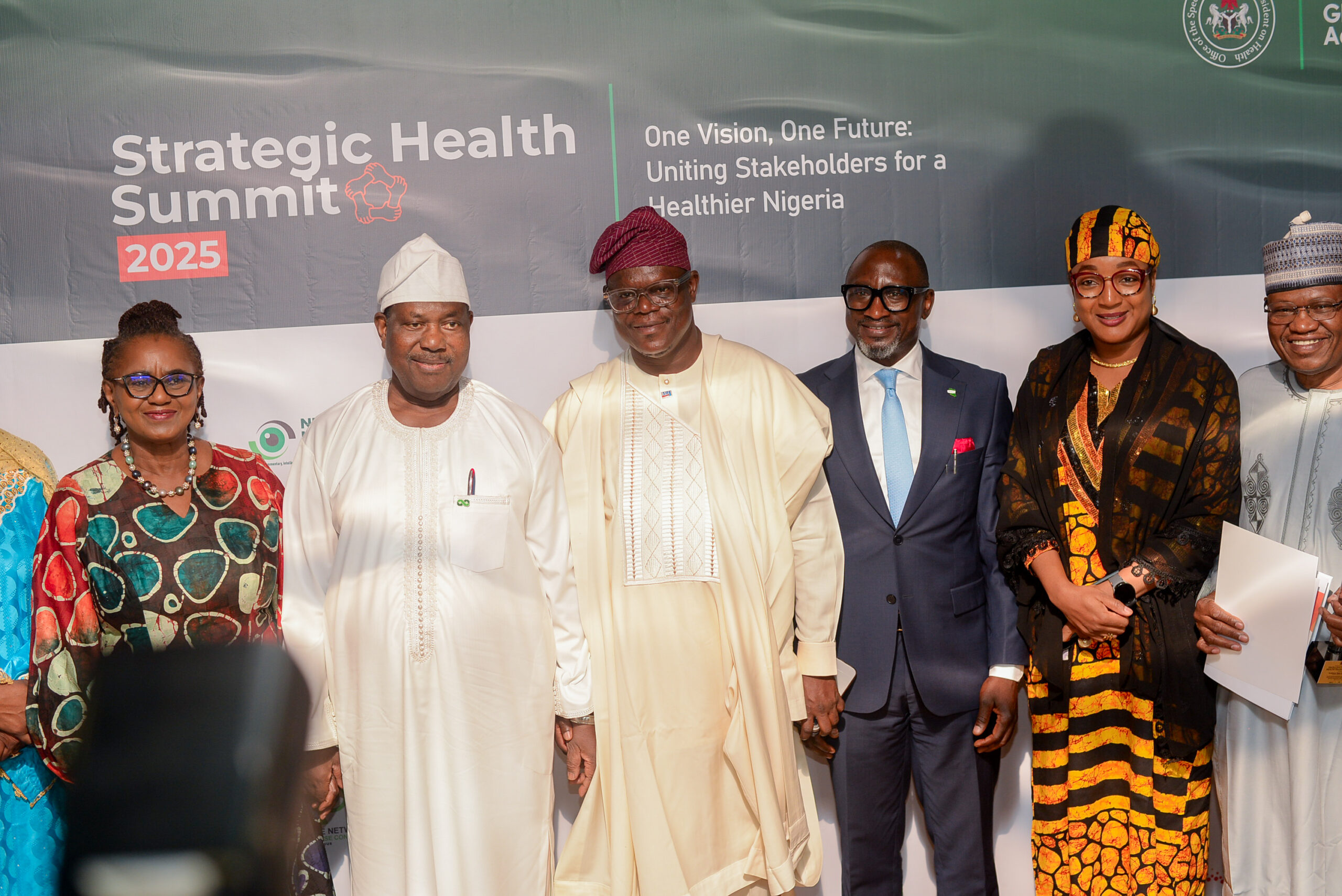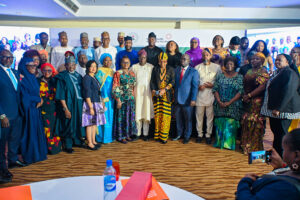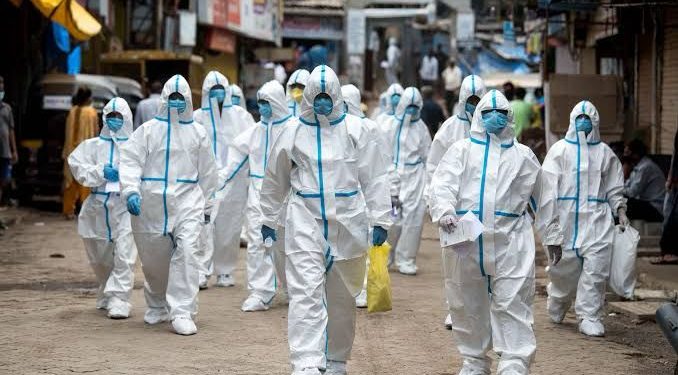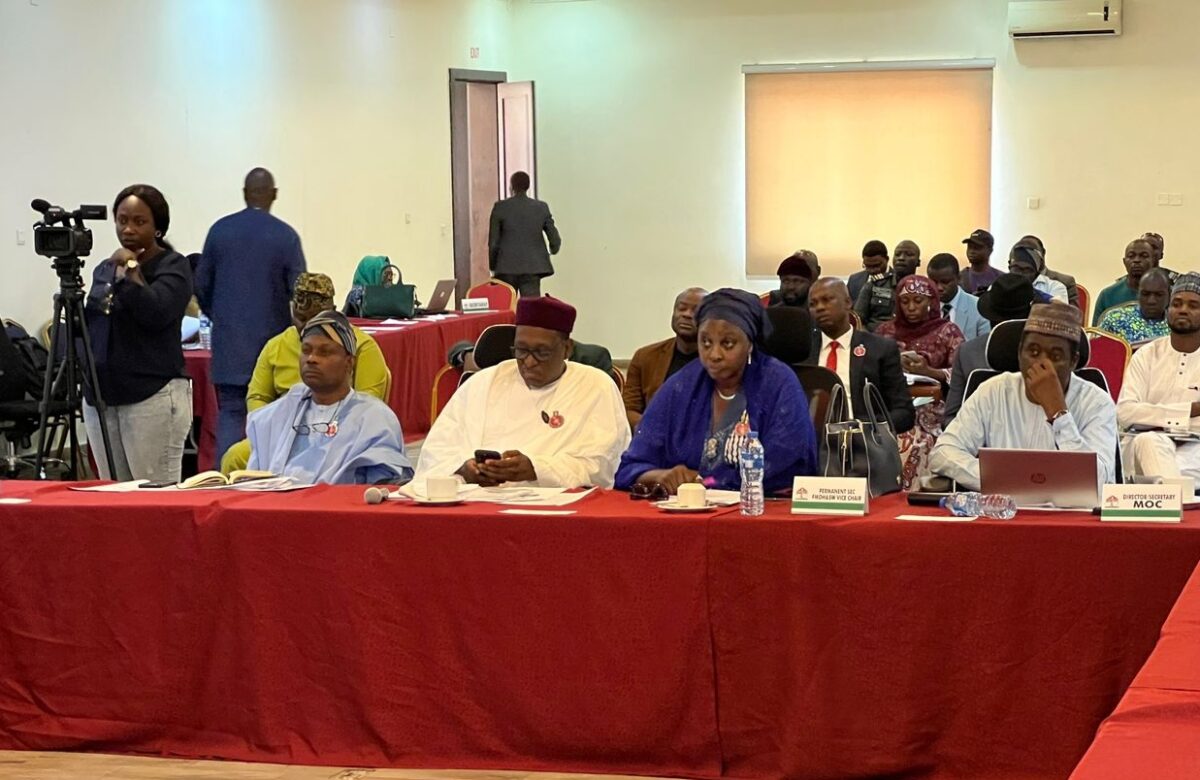
Strategic Health Summit 2025: Transforming Nigeria’s Health Sector for a Resilient Future.
- Health SectorHealth Security
- No Comment
- 835

On February 18, 2025, the Strategic Health Summit for a Healthier Nigeria was held at the Transcorp Hilton in Abuja, bringing together key stakeholders in the health sector, including the legislature, to discuss strategies for improving Nigeria’s health security. Organized by the Office of the Special Adviser to the President on Health in collaboration with the Global Health Advocacy Incubator (GHAI) and partners such as the Legislative Initiative for Sustainable Development (LISDEL), Nigeria Health Watch, BudgIT, and the Vaccine Network for Disease Control, the summit focused on epidemic prevention, immunization, and strengthening primary healthcare systems under the theme “One Vision, One Future: Uniting Stakeholders for a Healthier Nigeria.”
Senator (Dr.) George Akume, Secretary to the Government of the Federation (SGF), officially opened the summit, emphasizing President Tinubu’s unwavering commitment to healthcare. He highlighted key achievements, including the establishment of 16 new health facilities, the removal of tariffs on medical equipment, and the expansion of universal health coverage. He noted that Tinubu inherited a struggling health sector but has long been dedicated to its transformation, as demonstrated by initiatives such as the Health Transformation Coalition (HTC) and the creation of a Health Subcommittee within the Presidential Advisory Council. The appointment of Professor Muhammad Ali Pate as Coordinating Minister of Health and Social Welfare further reinforced this commitment by integrating social welfare with healthcare to drive national development.
The SGF also underscored bold interventions like the Presidential Initiative on Unlocking Value Chain (PVAC), aimed at boosting local pharmaceutical and medical device production. President Tinubu’s executive order eliminating tariffs and excise duties on medical equipment seeks to enhance competitiveness and lower production costs. Additionally, the expansion of the Basic Health Care Provision Fund is designed to provide financial protection for vulnerable populations. Addressing the challenges of medical tourism and healthcare worker migration, Tinubu approved a National Policy on Health Workforce Migration and upgraded 16 health facilities, including the establishment of six new cancer centers. As the administration reaches its mid-term, Akume emphasized the summit’s role in evaluating progress, celebrating achievements, and strengthening partnerships to build a resilient and equitable healthcare system in Nigeria.
In her welcome address, Dr. Salma Ibrahim Anas, Special Adviser to the President on Health, highlighted the efforts of the Presidential Advisory Council’s Health Subcommittee in reviewing existing policies, conducting stakeholder consultations, and considering the recommendations from the Presidential Health Sector Reform Committee (PHSRC) to address critical gaps in the sector. She stressed that the Renewed Hope Health Agenda is centered on Universal Health Coverage (UHC) and views health as an investment capable of driving job creation and fostering economic and social development. The agenda aims to reduce neonatal mortality by 40% (from 38 per 1,000 live births), infant mortality by 40% (from 67 per 1,000 live births), and under-five mortality by 25% (from 132 per 1,000 live births).
Vandana Shah, Vice President for Health Systems Strengthening at GHAI, highlighted GHAI’s partnership with Nigeria as a model for success, citing achievements such as doubling NCDC’s funding, increasing Kano State’s investments in epidemic preparedness, and enhancing funding for immunization. She praised Nigeria’s innovative domestic resource mobilization, which is saving lives and setting a global standard for sustainable health systems.
WHO Country Representative Dr. Walter Kazadi Mulombo, in his remark, commended Nigeria’s leadership in domestic health financing and its effective COVID-19 response while urging continued preparedness for future pandemics. In the same breath, Dr. Kamil Shoretire, Director for Health Planning, Research, and Statistics at the Federal Ministry of Health and Social Welfare, reiterated the ministry’s strategic focus on governance, population health outcomes, and pandemic readiness. Dr. Lecky Muhammed, Chairperson of the Health Sector Reform Coalition Nigeria, called for stronger collaboration across civil society and other sectors to tackle maternal and child mortality, infectious diseases, and non-communicable diseases while empowering communities through education and capacity-strengthening initiatives.
Dr. Abdu Mukhtar, the National Coordinator of the Presidential Initiative for Unlocking the Healthcare Value Chain (PVAC) outlined the initiative’s mission, ongoing efforts as well as notable progress made. In his presentation, key objectives of this strategic pillar in the renewal program include increasing Nigeria’s health product and technology manufacturing and local research and development capabilities. In the last year, the initiative had secured an executive order from the president to improve commodity manufacturing ecosystem, developed a national clinical trials investment case, and mobilized 1 billion USD and 1 billion Euro financing mechanisms with the Afrexim Bank and European Investment Bank respectively.
The panel discussions on health security and maternal and child health stimulated rich dialogue on the policy and financing landscape for the present reforms; with participants including LISDEL’s Director of Programs Damilola Ademuyiwa, calling for the legislative and operational reforms to the basic healthcare provision fund (BHCPF). With capacity across health security and primary healthcare objectives, the BHCPF is viewed by the panelists as a fulcrum for renewed financing principle which must mainstream the revived roles of local government authorities (LGAs) following the landmark Supreme court ruling on LGA autonomy in 2024.
By LISDEL Team




